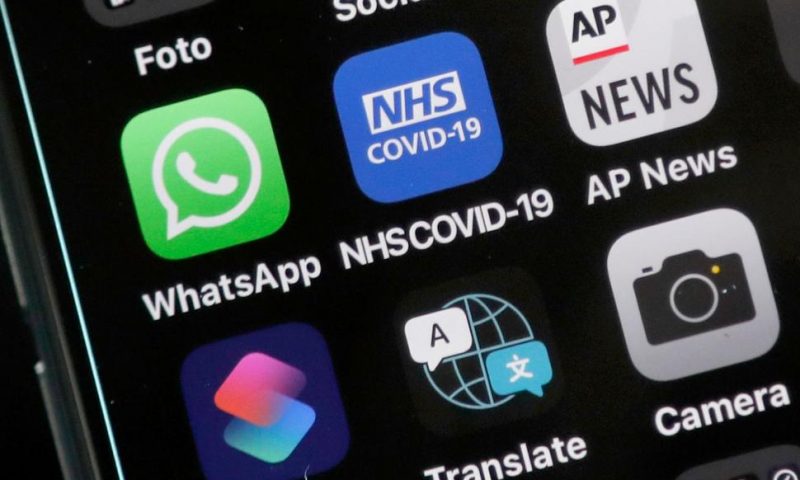Britain is easing coronavirus quarantine rules for essential workers including prison guards, veterinarians and garbage collectors in an attempt to end staff shortages that are hobbling parts of the economy.
LONDON — The British government said Tuesday it will ease coronavirus quarantine rules for thousands more essential workers — including prison guards, veterinarians and garbage collectors — in an attempt to end staff shortages that are hobbling parts of the economy.
About 26 million Britons have downloaded a health service phone app that tells them to self-isolate for 10 days if they come into contact with someone who tested positive for COVID-19. With the U.K. recently recording tens of thousands of new virus cases a day, the system has caused disruptive employee absences for restaurants and other businesses and led to gaps on some supermarket shelves.
Starting Aug. 16, anyone who has been fully vaccinated in Britain will be able to take daily coronavirus tests rather than self-isolating. But many businesses are pushing for the change to happen sooner.
Last week, the government said food and transport workers, border staff, police and firefighters could opt for the daily tests. Now it has expanded that system to more jobs, including refuse collectors, prison staff, veterinarians, tax collectors and defense workers.
The government said 2,000 sites would be set up to meet the increased demand for tests.
One person “pinged” by the app is Prime Minister Boris Johnson, who had to self-isolate after Health Secretary Sajid Javid tested positive this month. Johnson’s 10-day spell in isolation ended at midnight Monday.
Johnson said he understood people’s frustration, but urged them to “stick with the program.”
“We do need to use the tools that we have. Self-isolation is the one that we’ve got. I urge people to do it,” he said.
Those notified by the app aren’t legally required to self-isolate. And there have been reports that people have deleted the app from their phones. The app’s contact tracing function can also be turned off.
Britain removed most remaining pandemic restrictions, including mandatory mask rules and capacity limits, on July 19, despite several weeks of rising infections driven by the highly contagious delta variant of the virus.
Despite that easing, cases have fallen for six straight days, with Monday’s figure of 24,950 confirmed infections down more than a third from the figure a week earlier. Scientists said the decline could reflect the end of the Euro 2020 soccer tournament, which drew crowds to games, pubs and parties, and the recent end of the school year for most pupils.
Britain has also given 70% of adults both doses of a coronavirus vaccine.
But authorities caution that the impact of the end of restrictions on July 19 hasn’t yet been felt in the figures.
Johnson said “it is very, very important that we don’t allow ourselves to run away with premature conclusions” about the infection rate.
“People have got to remain very cautious, and that remains the approach of the government,” he said.

